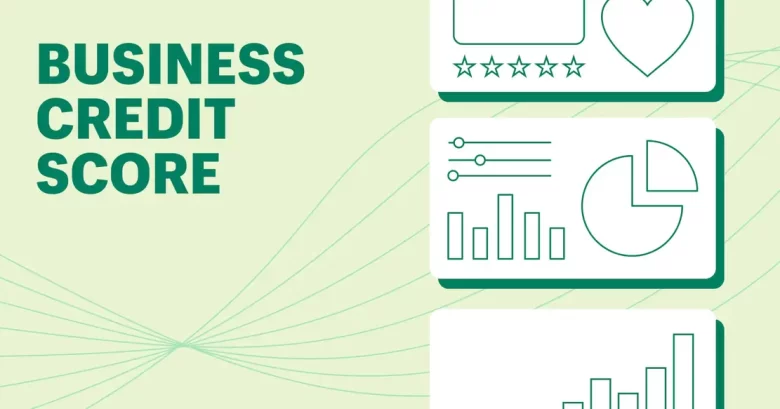Building business credit is not only a beneficial idea, but it is also a necessary step to ensure the long-term success of your business. Beginning entrepreneurs often do not realize how important it is to build excellent business credit. They only realize the value when they need to raise capital, attract investors, or manage their cash flow. As your business grows, it is essential to have quick and easy access to financing.
Good business credit gives you access to many things that people with poor personal credit do not have. Whether you are a start-up or looking to improve your business’s financial situation, it is important to understand how business credit works. Having the appropriate information and resources to establish a solid reputation for your company is crucial in the fast-paced business world of today.
What Is Business Credit and Why Does It Matter?
When your business has business credit, it can borrow money or purchase goods and services with an agreement to pay later. Business credit, on the other hand, is based on your Employer Identification Number (EIN), not your Social Security Number (SSN). Creditors, lenders, suppliers, and even potential business partners use this credit score to understand the financial health of your business. A favorable business credit score indicates that the business is reliable and reduces risk. These factors can lead to better financing terms, higher credit lines, and better trading opportunities. Without a favorable credit score, a business may have to pay higher interest rates or even be denied an important loan application.
How to Get Business Credit for the First Time:
The first thing you need to do to improve your credit is to separate your personal and business finances. First, you need to formally incorporate your business (e.g., limited liability company, corporation, etc.) and apply for an Employer Identification Number (EIN) from the Internal Revenue Service (IRS). Next, open a separate bank account for your business. This process is essential for both keeping track of your finances and demonstrating that you are capable of managing your finances. Next, please ensure that your business has a registered office, a phone number, and is listed in online directories. Lenders can use this information to track your business activities and build trust in it.
Register with a Business Credit Bureau:
You will need to register with a major commercial lender, such as Dun & Bradstreet, Equifax Business, and Experian Business, to build your credit. Dun & Bradstreet provides the widely used D-U-N-S® number, which is unique to your business. Lenders use this number to calculate your Paydex score, one of the most important credit scores. Once your business is approved, you can begin building a favorable credit history. You can build a good credit history faster if you start this process right away.
Open Trade Credit with Suppliers:
One of the best ways to build business credit is to open trade credit accounts with suppliers who report payments to credit bureaus. You can purchase goods from a vendor and pay for them later, usually with a net payment term of 30, 60, or 90 days. We refer to this type of loan as a trade credit. These accounts let credit bureaus know that you have a favorable credit history if you pay on time or early. Start with companies like Uline, Quill, and Grainger, which are known for working with new businesses. These early lines of credit will set the stage for your business’s creditworthiness.
Use Business Credit Cards Wisely:
Applying for a business credit card is a smart way to increase your credit limit and spread out your use. Applying for a business credit card is easier than applying for a standard line of credit and often offers perks and cash back. But it’s crucial to use your credit card wisely. Always pay your balance in full or on time to avoid interest and prove that you can pay off your debt. Over time, this can significantly improve your business’s credit score and give you more leverage with lenders and suppliers.
Monitor Your Business Credit Report:
Just like your credit report, it is essential to monitor your business credit report daily. Please ensure the information is accurate, up-to-date, and reflects your current financial situation. Errors in your report can lower your credit score and make it harder to get a loan. Check your credit history daily with Dun & Bradstreet, Equifax, and Experian. If you happen to identify an error, please file a complaint so it can be corrected promptly. Monitoring can also alert you to fraudulent activity or accounts opened in your business name without your permission.
Maintain a Favorable Payment History:
Your payment history is essential if you want to build and maintain excellent business credit. Lenders and vendors want to make sure you pay on time to do business with them. If possible, try to pay your bills before they are due. Your Paydex score is based on how quickly you pay your bills, and it will be higher if you pay early. A good reputation is favorable for our business and can result in better terms and a higher credit limit.
Use Credit to Grow Your Business:
If your business has good credit, you can use it to grow. Access to credit allows you to grow your business without sacrificing all of your cash. This is true whether you are taking out a line of credit, buying new tools, or hiring more employees. Additionally, good credit can help you get better loan rates, excellent insurance premiums, or even attract investors or buyers. Use credit wisely, and you can turn your financial reputation into real business growth.
Separate Personal and Business Finances Permanently:
Some business owners continue to use their credit to pay for business expenses even after they have established business credit. This can undermine the financial stability of your business and put you at risk for no reason. Credit cards, bank accounts, and business funds should all be in the name of the business. In addition to maintaining a high personal credit score, this helps your business remain financially independent, which is crucial when you want to secure more financing or sign a contract.
Conclusion:
A successful business depends not only on a great product or a high turnover but also on being able to efficiently obtain and manage cash. Establishing business credit is a long-term investment that enhances your business’s resilience, reliability, and financial stability. By registering your business, monitoring it, and closely monitoring your credit reports, you can build good credit and help your business achieve its goals. Starting your business early can help you take advantage of growth opportunities and weather economic downturns. As an entrepreneur, you need to have the tools and information you need to build lasting financial credibility.
FAQs:
1. How long does it take to get business credit?
It can take up to two years to build excellent credit, provided you are responsible with your money. It usually takes three to six months to establish a basic credit score.
2. Can I build credit for my business without using my credit?
Yes. If you set up your business properly and open lines of business under your business name, you can build credit in your name. However, some lenders may require a personal guarantee.
3. What credit score is beneficial for a business?
People with a Paydex score of 80 or higher are considered to have excellent credit. For Experian and Equifax, numbers above 75 generally mean you have excellent credit.
4. What is the status of all your vendors? Do they report to the commercial credit bureaus?
No, not all vendors do. To ensure that your payments contribute to building your credit, it is best to only work with vendors who explicitly report to credit bureaus such as Dun & Bradstreet.
5. Can a sole proprietorship build a business credit score?
To some extent, you can, but it is more difficult. When you set up as a private limited company (BV), your personal and business identities are separate. This makes it easier to build a separate credit history.




